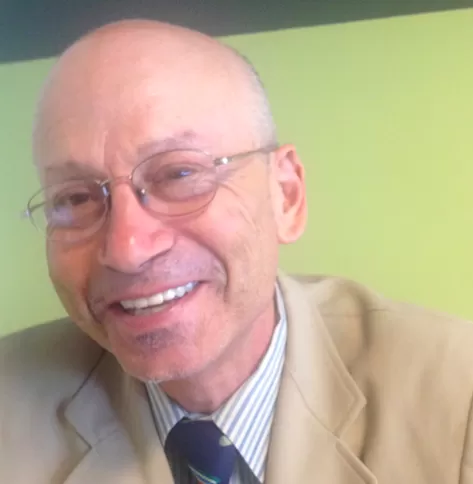Irvin Dawid discovered Planetizen when a classmate in an urban planning lab at San Jose State University shared it with him in 2003. When he left San Jose State that year, he took with him an interest in Planetizen, if not the master's degree in urban & regional planning.
As a long-time environmental activist, he formed the Sustainable Land Use committee for his local Sierra Club chapter and served six years on the Bay Area Air Quality Management District’s Advisory Council from 2002-2008. He maintains his interest in air quality by representing Sierra Club California on the Clean Air Dialogue, a working group of the Calif. Environmental Dialog representing business, regulatory and public health/environmental interests.
Major interests include transportation funding, e.g., gas taxes, vehicle miles traveled (VMT) fees, road tolls and energy subsidies that lead to unlevel playing fields for more sustainable choices.
He hails from Queens (Bayside) and Long Island (Great Neck); received an AAS in Fisheries & Wildlife Technology from SUNY Cobleskill and a B.S. from what is now Excelsior College.
After residing for three years on California’s North Coast, he’s lived on the San Francisco Peninsula since 1983, including 24 years in Palo Alto. Home is now near downtown Burlingame, a short bike-ride to the Caltrain station.
He’s been car-free since driving his 1972 Dodge Tradesman maxi-van, his means to exit Long Island in 1979, to the junkyard in 1988.
Major forms of transportation: A 1991 'citybike' and monthly Caltrain pass, zone 2-2. "It's no LIRR, but it may be the most bike friendly train in America."
Irvin can be reached at [email protected]
CA Solar Plants In Race To Qualify For Expiring Federal Subsidy
In one of the most remarkable spurts of renewable energy investment in the U.S., six solar plants have been approved in six weeks in the California desert totaling almost 3 gigawatts. More are on the way, including new Stirling dish technology.
USA Today Takes Survey On Whether To Invest in HSR
USA Today's traveler reporter asks, "Should the U.S. invest in High-Speed Rail?" (readers check their answer and results are available). He cites the usual critics but also notes the challenges it must face in order to build a successful line.
Regionalism Takes A Step Forward In CA With SB 375 Targets Approved
NRDC land use expert Amanda Eaken blogs about the approval by the Air Resources Board of the regional targets required by SB 375 to reduce global warming caused by transportation. An overlooked result may be the new powers resting with MPOs.
HOT Lane Litigation Condemned By Legislators
Arlington County's litigation of construction of three High Occupancy Toll lanes based on civil rights violation (because of exposure to air pollution of those living near I-95/395) has prompted the bi-partisan wrath of 2 of VA's top state senators.
California Set To Adopt Emissions Targets From VMT Reduction
The fruition of a lengthy state planning process required by SB 375 may come as early as Sept. 23 when the CA Air Resources Board may adopt targets for 18 metropolitan regions to reduce greenhouse gas emissions by reducing vehicle miles traveled.

























